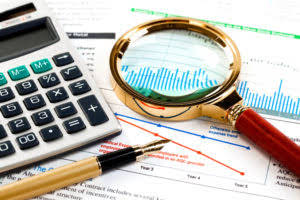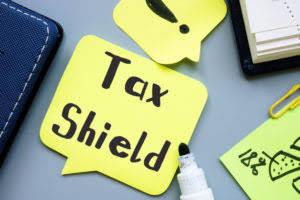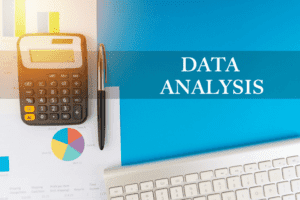
FreshBooks makes it easier than ever for you to get paid with simple, secure online payments. Clients can pay by credit card straight from an invoice with just a couple of quick clicks. With high-level encryption and first-class security, your clients don’t have to worry about payment protection. FreshBooks offers a transparent, affordable https://www.bookstime.com/ fee structure to remove the guesswork from online payments for sole traders. Make the billing process as simple as possible for both you and your clients. FreshBooks accounting software allows you to set up billing schedules so your clients can pay automatically and securely by credit card every month, without having to think about it.
Untold Extra Income Streams For Small Business Owners
There are resources online to help you get started with online bookkeeping, and your accountant will also be able to help you get started. Speak to your accountant to see if they can offer a tutorial and any training you may require. Julie Corkish, ICAEW’s head of practice, explains what small business owners should consider when hiring an accountant.
What expenses can I claim through my business?
It is important to seek advice from a qualified professional such as a tax accountant or bookkeeper if you are unsure about your tax obligations or how to file correctly. This is calculated by subtracting allowable business expenses from your business income. You must also register for and pay goods and services tax (GST) if your annual turnover exceeds a certain threshold. This includes understanding your tax obligations, such as what taxes you need to pay, when they are due, and how to calculate them. This information can help you allocate resources effectively and plan for future expenses. When budgeting, accounting for any seasonal variations in the business is critical to ensure that you have sufficient funds when they’re needed.
Easy Ways to Simplify Your Small Business For Streamlined Success
Single-entry bookkeeping system is tailored for businesses with straightforward or minimal transactions. Traditionally, this method is not employed by businesses dealing with accounts receivable, accounts payable, or numerous capital transactions. Using cloud accounting software as a sole trader also means you can cut down on paper, saving you money and space—the latter may be in short supply in your home office or workshop.
- Displaying a VAT registration number on your website can give the impression of a larger business.
- This means they alone operate the business and retain all profits and losses.
- It’s one of those jobs you’ll thank yourself for later as your business grows and there are more and more transactions happening relating to the business.
- The good news is that a Wise Business account can make managing cash flow in multiple currencies easier.
- Without proper organisation, it can be easy to lose track of expenses and miss out on potential tax deductions.
- As a sole proprietor, the owner must handle all bookkeeping and accounting themselves or hire an accountant.
Monitor your cash flow regularly
A sole trader, also known as a sole proprietorship, is the simplest and most common business structure. It’s essentially an unincorporated business owned and operated by a single individual. The sole trader has complete control over the business and is personally liable for all its debts and obligations. This means there’s no legal distinction between the business and the owner’s finances. Tax administration is usually done by an accountant, as it’s part of broader financial management. Working with a tax professional can provide tailored advice, ensuring you make the most of your tax situation.
- At Crunch we provide affordable cutting-edge, easy-to-use software with real human support from expert chartered accountants.
- The credit card reconciliation process is similar but requires some additional steps compared to reconciling bank accounts.
- It’s essential to have a clear understanding of what will be audited so that you can focus on those areas during preparation.
- By taking these simple steps, you can rest assured that your business finance records are in good shape and will stand up to any external scrutiny if selected for auditing.
- Regular reviews of a sole trader’s financial statements can provide valuable insights into the health and profitability of their business.
Ensure the bookkeeper uses modern bookkeeping software and technologies
- Reach out to other sole traders or small business owners for recommendations on bookkeepers they trust.
- This will help you make informed decisions about how to allocate resources and plan for future growth.
- These validate the authenticity of entries made if tax agencies raise questions later.
- Without accurate records of income and expenses, it can be challenging to determine if a business is profitable or not.
- You’ll need to keep a record of all your invoices and receipts for six years.
- You should record all income and expenses, including sales and expenses receipts, bank transactions, and any other financial transactions related to your business.
- Learn more about how to fill out a Self Assessment for the first time with our handy one-stop guide.
As a sole trader, you are responsible for ensuring that you comply with all relevant tax laws and regulations. This involves keeping accurate records of your income and expenses, reporting your earnings to HMRC, and paying any tax that you owe. Keeping track of invoices and receipts is essential for accurate bookkeeping. You should retain records of all invoices and receipts, including sales receipts, expenses receipts, and bank statements. Make sure to label and organise your records in a way that makes sense to you and your accountant.
How to manage your accounts and bookkeeping as a sole trader

Additionally, sole traders may be required to register for Goods and Services Tax (GST) if their annual turnover exceeds $75,000. Taxation is one thing that cannot be avoided when running a sole trader business in Australia. To ensure that your tax payments are always up-to-date, set aside a separate account specifically for taxes where you will deposit some percentage of each sale. The chart of accounts is a listing of all accounts used by your business to record transactions such as revenue earned and expenses incurred. It’s essential that this list accurately reflects your business’s financial activity.
Deductible as an Entertainment Expense
Monitoring your cash inflows and outflows is crucial for maintaining healthy finances. As a sole trader, it’s easy to get caught up in the day-to-day operations of the business, leaving little time for financial management. Categories could include office supplies purchases or travel expenses related to work-related tasks. Make sure to keep detailed records in case of an audit – record retention for sole traders varies by location but generally requires keeping documents for at least three years. On the other hand, bookkeeping software can be more efficient and accurate but does come with a cost. We built okke to be the best and simplest bookkeeping software for sole traders, with easy to learn guides and simple terms to keep learning time low.

Understanding Debits and Credits
Make sure that you keep all of your receipts and invoices so you are prepared when the self-assessment deadline comes around. There are even business apps that allow you to take a picture of your receipts, making it easier to keep a record without having the worry sole trader bookkeeping of losing your receipts. Keeping accounts of a business is incredibly important and it must be done right. Here is our guide on sole trader accounts and bookkeeping, to help you get a good understanding of what it’s like to run your business as a sole trader.
As well as your income and expenses, it’s crucial as a sole trader to understand your tax obligations and set aside the necessary funds each year. This is essential for completing your Self Assessment, which determines the amount of tax you owe. By having a dedicated business bank account, you can easily track and record your business-related expenses and income. This simplifies the process of completing your annual accounts and Self Assessment Tax Return, saving you valuable time and effort. From recording income and expenses to understanding tax obligations, keeping track of your finances means you stay on the right side of tax regulation. Bookkeeping should be a daily or weekly task to ensure that your record is kept up to date and allow you to keep an eye on how the finances of your sole trader business are doing.